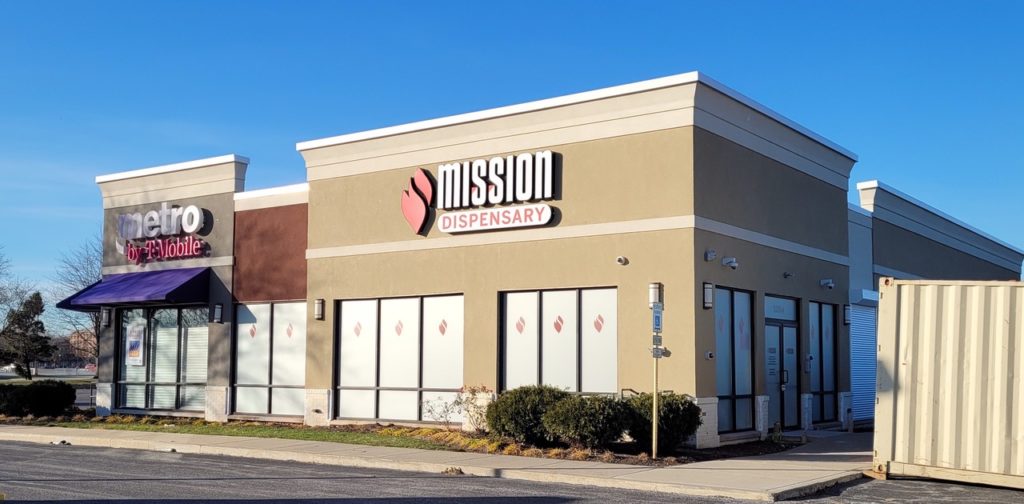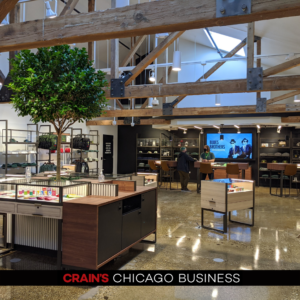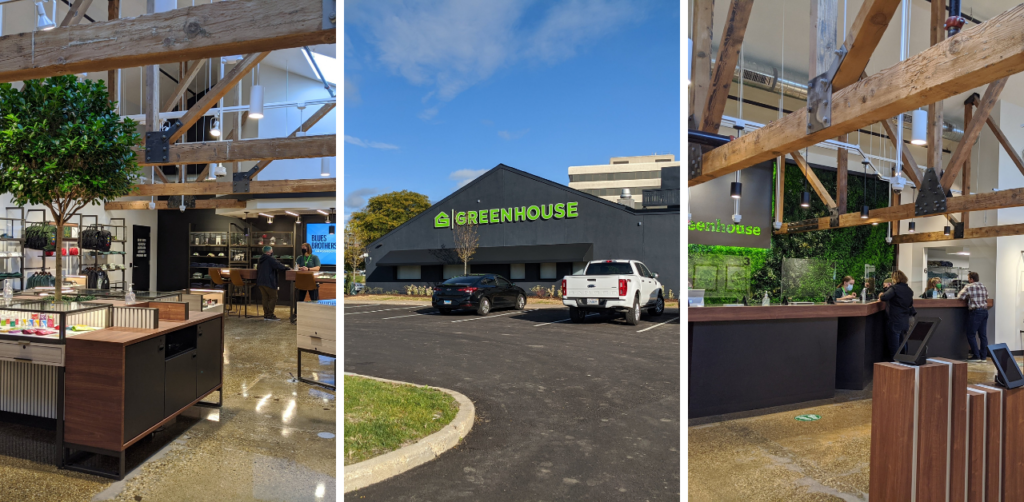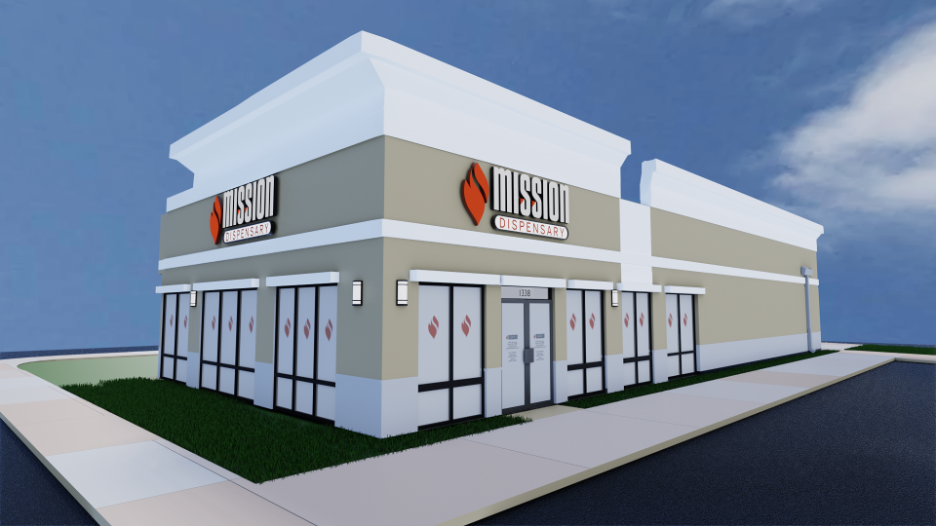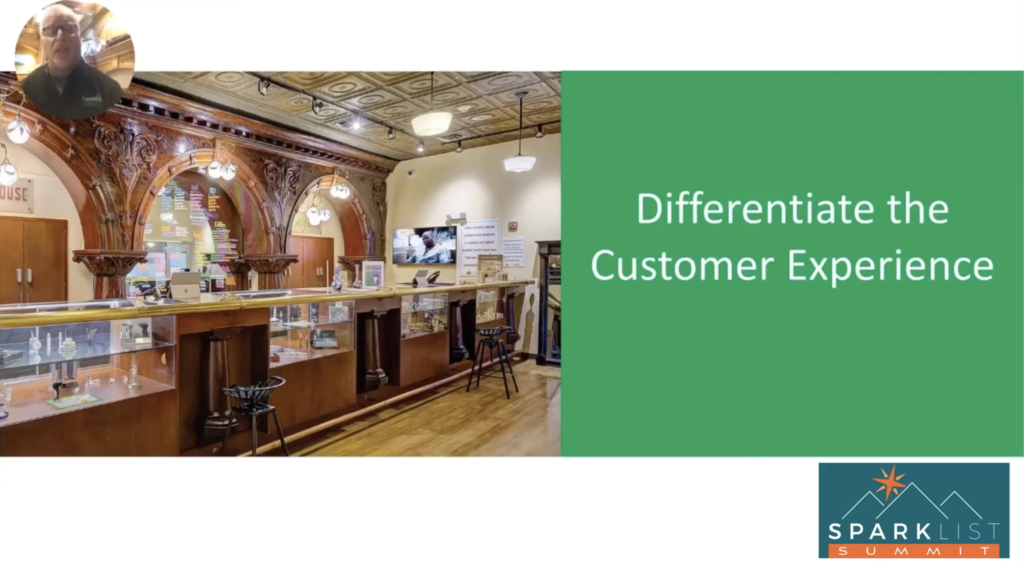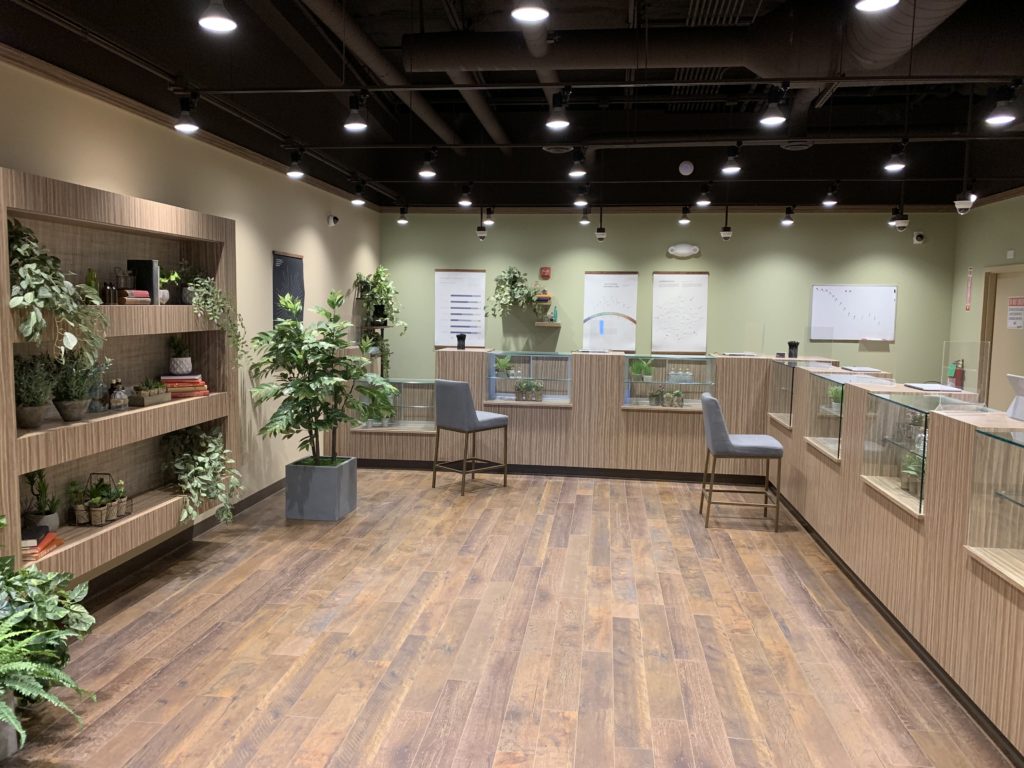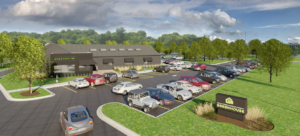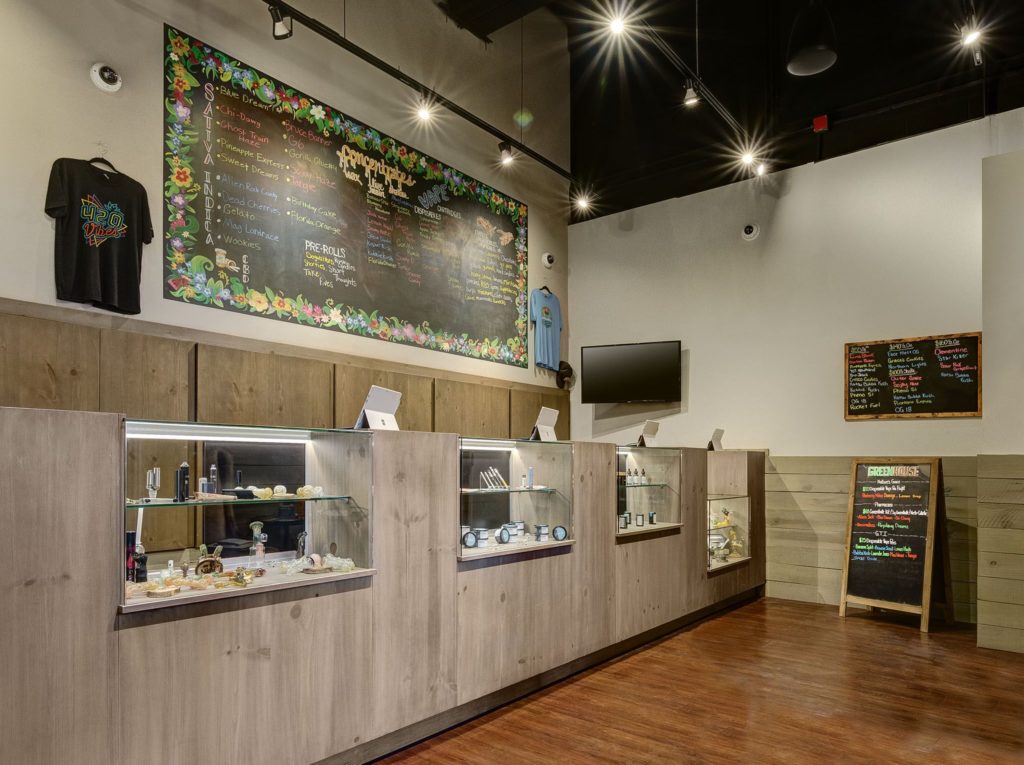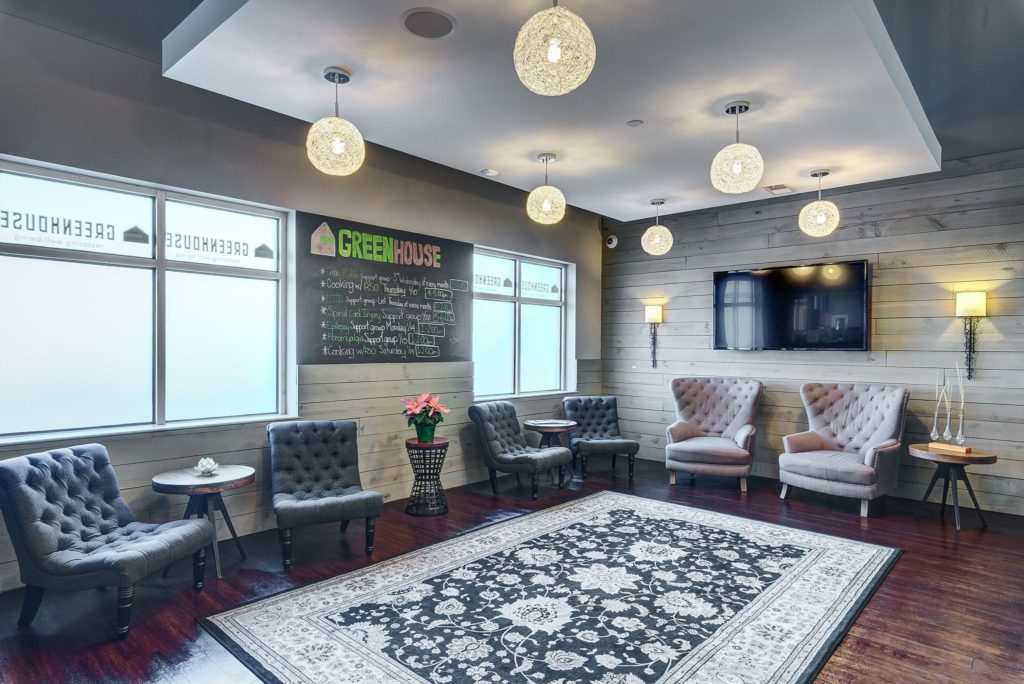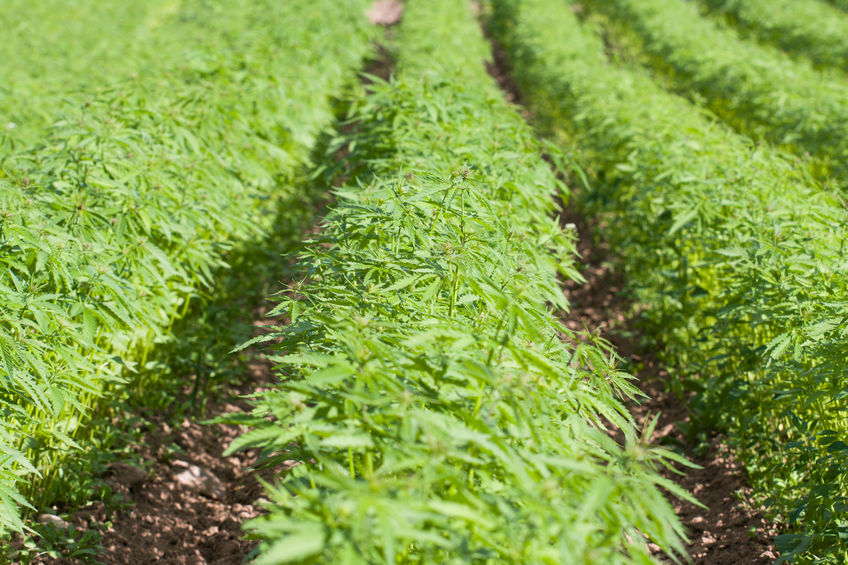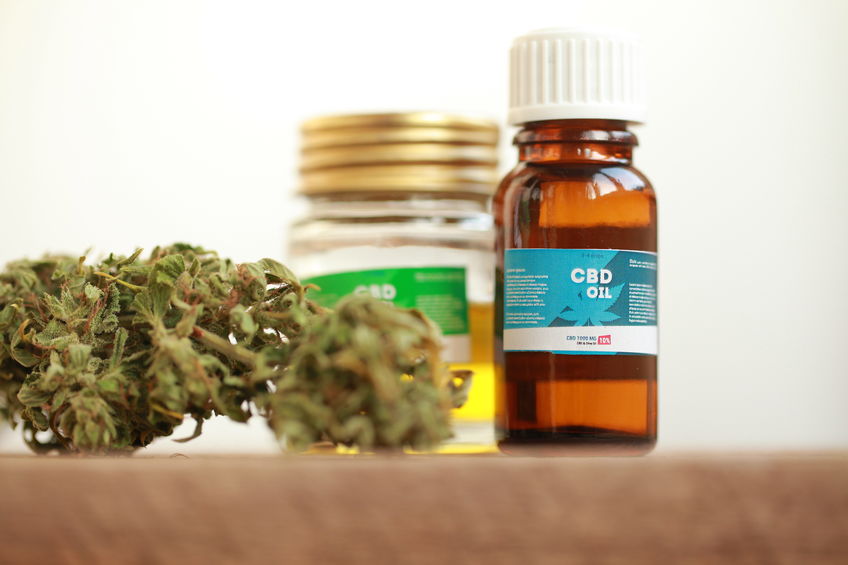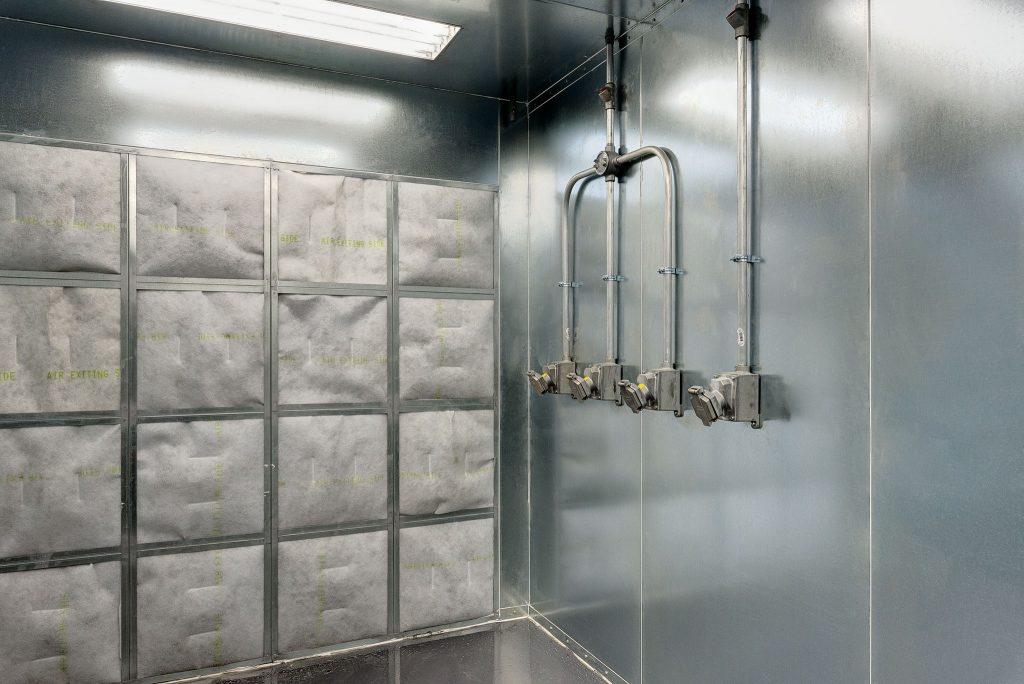Category: cannabis
Cannabis Facility Construction Completes Construction on New Mission Dispensaries Location in Calumet City, IL
Cannabis Facility Construction (CFC), a national, full-service, cannabis design-build construction firm, is pleased to announce the completion of construction on a new Mission Dispensaries recreational and medical dispensary for 4Front Ventures Corp. in Calumet City, IL.
The dispensary, located at 1330 Torrence Avenue, across from River Oaks Center, opened to the public on December 15, 2020 and offers approximately 3,000 square feet of finished retail space, back office space for processing, a secure, oversized vault, highly advanced security system and plenty of parking.
Thanks to a program from the Calumet Region Enterprise Zone, identified by Cannabis Facility Construction, 4Front Ventures benefitted from tax-free construction materials and other real estate tax incentives throughout the renovation.
“We’re excited to have revitalized this building and delivered a beautiful dispensary in Calumet City,” said Andy Poticha, Principal at Cannabis Facility Construction. “It’s been a pleasure for us working with the Mission team who are always very detail-oriented and organized, making our job that much easier.”
As their preferred design-build partner, Cannabis Facility Construction has delivered multiple dispensaries for 4Front Ventures, including Ann Arbor, MI; Georgetown, MA; Montclair, NJ and on Chicago’s South Side.
“It’s a pleasure working with Cannabis Facility Construction as our design-build partner on this and multiple projects across the country,” said Robert Spence, Director of Facilities at Mission Dispensaries. “We decided to add additional air purification and air filtration components to our HVAC system at the Calumet City dispensary to further enhance our response to the pandemic, and the CFC team was able to adjust seamlessly mid-project so we could make a significant improvement to the indoor air quality for our occupants without delaying our opening.”
A leader in serving the construction needs of the cannabis industry since 2015, Cannabis Facility Construction has built more than 30 cultivation centers, processing laboratories and retail dispensaries customized for the needs of medical and recreational cannabis clients in ten different states.
Cannabis Design and Construction are Team Sports
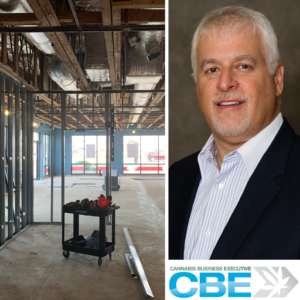
Pot shops are starting to resemble Apple stores
Our Principal Andy Poticha was featured in an article for Crain’s Chicago Business where he discussed how design in the cannabis dispensaries are becoming more high-concept and starting to resemble Apple stores and how COVID-19 has influenced that design, “You have to think about a separate place to have preorders filled versus having people shop in the store. You might come in one way, go out the other. I’m not sure the size of stores will change much. You’ll need more back of the house than floor space.” Andy said.
https://www.chicagobusiness.com/marijuanacannabis/pot-shops-are-starting-resemble-apple-stores
Cannabis Facility Construction Completes Construction of New Flagship Dispensary for Greenhouse Cannabis
NORTHBROOK, IL (OCTOBER 5, 2020) – Cannabis Facility Construction (CFC), a national, full-service, cannabis design-build construction firm based in Northbrook, IL, has just completed construction of a new recreational and medical cannabis dispensary for Greenhouse. The new flagship dispensary, located at 755 Skokie Boulevard in Northbrook, IL, opened to the public on September 29 and offers 9,982 square feet of finished space.
“It’s been an honor working with Greenhouse on this new flagship dispensary offering an enjoyable, high-quality customer experience,” said Andy Poticha, Principal at Cannabis Facility Construction. “As their design-build partner, our team has delivered dispensaries for Greenhouse across multiple states over the past six years and we are tremendously excited to deliver yet another, this time right in our own backyard.”
Construction commenced in May, revitalizing the site and the surrounding area that had been vacant for quite some time.
The location’s sleek, modern, industrial design represents a new look for the Greenhouse brand and features an open floor plan with high vaulted ceilings, skylights, abundant natural light. The point of sale stations, consultation areas and easy-to-browse product displays provide ease and comfort for social distancing and complement the wood and masonry structure.
In order to create a differentiated and welcoming customer experience, careful consideration has been given to both customer traffic flow, and the reality of social distancing with all points of sale six feet apart, so transactions take place with proper space between people at the counter. In addition to the retail space up front, the location also includes back office space, a secure, oversized vault for substantial inventory storage and a highly advanced security system.
CFC’s work complements exterior infrastructure improvements that happened simultaneously, revitalizing the surrounding area with natural landscaping, a retention pond, large parking lot, and new turn lane from Skokie Boulevard.
A leader in serving the construction needs of the cannabis industry since 2015, Cannabis Facility Construction has built more than 30 cultivation centers, processing laboratories and retail dispensaries customized for the needs of medical and recreational cannabis clients in 10 states.
For more information on CFC or to connect with principals Andy Poticha, Ira Singer, and Mike Frazin, please visit www.cannabisfacility.net.
Cannabis Facility Construction Starts Construction on New Mission Dispensaries Location in Calumet City, IL
Latest Project Represents Multiple Projects with 4Front Ventures in IL, MI and MA
CHICAGO, IL (SEPTEMBER 23, 2020) – Cannabis Facility Construction (CFC), a national, full-service, cannabis design-build construction firm based in Northbrook, IL, is excited to announce the start of construction on a new Mission Dispensaries recreational and medical dispensary for 4Front Ventures Corp. in Calumet City, IL.
“As their preferred design-build partner, Cannabis Facility Construction has delivered multiple dispensaries for 4Front Ventures in Ann Arbor, MI, Georgetown, MA, and on Chicago’s South Side,” said Andy Poticha, Principal at Cannabis Facility Construction. “We value our continued relationship and are excited to revitalize this new building and create a beautiful space with great street presence in Calumet City.”
Construction on the new dispensary, located at 1330 Torrence Avenue, across from River Oaks Center in Calumet City, commenced in early September and is expected to be complete by mid-December.
This new location for the brand offers plenty of parking and approximately 3,000 square feet of finished retail space, back office space for processing, a secure, oversized vault for substantial inventory storage, and a highly advanced security system.
According to Robert Spence, Director of Facilities at Mission Dispensaries, “Cannabis Facility Construction has been an incredibly collaborative partner during the construction process, working seamlessly with our team on the design and zoning process on this and multiple projects across the country.”
A leader in serving the construction needs of the cannabis industry since 2015, Cannabis Facility Construction has built more than 30 cultivation centers, processing laboratories and retail dispensaries customized for the needs of medical and recreational cannabis clients in ten different states.
For more information on CFC or to connect with principals Andy Poticha, Ira Singer, and Mike Frazin, please visit www.cannabisfacility.net.
Avoiding Common Construction Mistakes as a New Cannabis Licensee
Cannabis Facility Construction Principal, Andy Poticha, spoke last month at the inaugural Sparklist Summit, hosted by Supercritical. Illinois applicants and cannabis industry stakeholders learned about “Avoiding Common Construction Mistakes as a New Cannabis Licensee.” Listen here to the video.
https://www.youtube.com/watch?v=QBY9XpRTH4M&feature=emb_title
Building Your New Dispensary: Avoiding Common Design-Build Mistakes as a New Licensee
So you’re planning a new cannabis dispensary – congratulations! Whether this dispensary is your entrepreneurial dream come true or you’ve been down this road before, once you confirm your license, you’ll want to begin building out your location as quickly as possible. Our teams, currently building dispensaries across Illinois and other States, can help steer you through the unique maze that is the cannabis construction process.
Building a new dispensary is not as simple as it sounds. Dispensaries must offer the security of a bank branch, the compliance of a pharmaceutical company, and the aesthetic of a high-end retailer.
As experts in the design-build construction of cannabis facilities, our teams have been in the trenches building dispensaries, cultivation centers and processing labs since 2015, including a national flagship dispensary in Northbrook, currently under construction. We have been involved in more than 30 dispensary, cultivation center and processing lab projects in nine states since 2015. Currently, we are leading renovation projects that offer more than 35,000 new square feet of cannabis cultivation and dispensaries customized for the needs of both medical and recreational cannabis customers.
Here are a few ways you can jump ahead of the curve:
Differentiate the customer experience. Buying cannabis in a regulated dispensary should feel easy, welcoming and natural. Designing for the customer experience, creating welcoming sales environments, while remaining compliant with regulations, is where dispensaries differentiate themselves from the competition. One reason this is so important: with strict supply chain rules in place, many cannabis products are highly commoditized. If your product is a commodity, the customer experience becomes even more important.
Prioritize compliance or suffer the consequences. To maintain product supply and operational retail sales, stick to strict protocols and carefully follow building codes related to the handling, storage and distribution of cannabis throughout the supply chain. In Illinois, building code inspections are unique to each municipality, with enormous differences from one community to another. Be sure your design-build construction partner knows the right questions to ask, and the pitfalls that could come up at each inspection milestone.
Use a design-build approach. Design-build integrates your design and construction teams from the beginning, reducing surprises and streamlining your budget throughout the process of envisioning and construction your dispensary. When your architect and contractor are working together, you’ll find you have more time to focus on running your cannabis business, with less time spent in meetings about your space. In addition, a design-build model allows for a single point of accountability. At CFC, we use our four-step design-build process to ensure alignment and high-touch customer service throughout your project.
Your contractor shouldn’t be learning on the job. Your design-build construction partner should be respected in the industry and be able to speak to ‘tales from the trenches.’ While legalized recreational cannabis may be new to Illinois, there are companies like us that have been building for both medical and recreational cannabis for many years. You should never have to hear ‘let’s learn this together.’
Don’t let the pandemic get you down. As an essential business, construction has been building cannabis facilities throughout the COVID-19 shut-down period and continues today. With the right protocols in place, there’s no reason the construction of your dispensary can’t press forward. To understand more about how our crews stay safe, you can read our National Cannabis Industry Association (NCIA) blog post from June 2020 on how to expand or renovate your cannabis facility while observing social distancing.
Choose a contractor with experience. For nearly five years, CFC has worked with numerous cannabis companies, including vertically integrated multi-state operators (MSOs). “Partnering with CFC, we have been thoughtful about connecting the design/build process with our customer experience and compliance objectives,” said Mitch Kahn of Greenhouse Cannabis. “Together, we identified and solved potential issues early in the design/build process, so that the build-out is supportive of sales, security, and being good neighbors in our communities.”
Need more resources on the design-build dispensary construction process? Here are a few suggestions:
NCIA PODCAST:
https://thecannabisindustry.org/podcasts/cannabis-facility-design-and-construction/
KNOW BEFORE YOU GROW:
https://rejournals.com/know-before-you-grow-secrets-of-successful-cannabis-facilities/
KEY SUCCESS FACTORS:
While cannabis continues to be a fast-paced industry with changes on a daily and weekly basis, it’s no longer brand-new. There’s no reason you shouldn’t have a guide who knows the right questions to ask and can keep you from repeating mistakes of the past.
For more information on working with our Cannabis Facility Construction experienced teams, you can request a consultation here and one of our team members will get back to you immediately.
Construction On Cannabis Dispensary Begins
Northbrook Patch | Jun 17, 2020 – Construction is underway on a new recreational and medical dispensary at 755 Skokie Blvd. in Northbrook. Cannabis Facility Construction, a national, full-service, cannabis design-build construction firm based in Northbrook, announced the news Tuesday. The facility will be run by Greenhouse Group LLC.
The Northbrook location will be a national flagship location for the brand, according to a press release. The site, offering nearly 10,000-square-feet of finished space, is the former home the Rehabilitation Institute of Chicago. The vacant Marathon Gas station at 430 Dundee Road will be consolidated into one lot.
“As their preferred design-build partner, CFC has delivered multiple dispensaries for Greenhouse over the past five years in various states across the country,” said Andy Poticha, principal at Cannabis Facility Construction, in the release. “We are now especially excited to have this opportunity to build their largest flagship location right here in our own backyard.”
Read more at Northbrook Patch
In 2020, Cannabis Construction Must Offer Security of a Bank, Compliance of a Pharmaceutical Company, Aesthetic of a High-end Retailer
Legal recreational cannabis is a new industry in Illinois—and it’s in dire need of customized facilities. The first month of recreational cannabis sales in Illinois amounted to nearly $40 million. Sales figures spell opportunity both for cannabis companies and for experts in building special-purpose facilities for the industry’s stringent regulations and experience-driven customers.
Andy Poticha, Principal at Cannabis Facility Construction (CFC) has been involved in more than 30 cultivation, processing center and dispensary projects in eight states since 2015. He’s leading renovation projects that offer Illinois more than 35,000 new square feet of cannabis cultivation areas and dispensaries customized for the needs of recreational cannabis customers.
“To become recreational cannabis users’ preferred dispensary, new cannabis license holders must prioritize both compliance and customers in their facility design,” Poticha observes. The design/build process must support two core objectives:
- Prioritize compliance or suffer the consequences. To maintain product supply and operational retail sales, stick to strict protocols and carefully follow building codes related to the handling, storage and distribution of cannabis throughout the supply chain.
- Offer a differentiated customer experience. Product commoditization and restricted in-state cannabis sourcing leads to stiff competition between dispensaries.
“Cannabis companies need to offer the security of a bank branch, the compliance of a pharmaceutical company, and the aesthetic of a high-end retailer,” said Poticha. “Designing for the customer experience, creating welcoming sales environments that are compliant with regulations, is where dispensaries can find true opportunity to differentiate themselves from the competition.”
For nearly five years, CFC has worked with numerous cannabis companies, including Grassroots Cannabis, a vertically integrated multi-state cannabis company. For co-founder Mitch Kahn, CFC has helped Grassroots embrace these seemingly competing objectives into a cohesive customer experience.
“Partnering with CFC, we have been thoughtful about connecting the design/build process with our customer experience and compliance objectives,” said Kahn. “Together, we identified and solved potential issues early in the design/build process, so that the build-out is supportive of sales, security, and being good neighbors in our communities.”
The Rise of Hemp: The Federally Legal Industry is Booming
The hemp-derived CBD industry is expected to reach $16 billion nationwide by 2025. The ground-breaking Agriculture Improvement Act of 2018 or Farm Bill removed low-THC cannabis and its derivatives from the Controlled Substances Act, opening the door for FDA-regulated products like CBD pharmaceuticals, food items, additives, and dietary supplements. Already, major retailers like CVS and Kroger are selling CBD products. Granted CBD products, including CBD-infused water, CBD-infused cosmetics and CBD-infused pet treats in the marketplace pre-dated the Farm Bill, those products can now be shipped across state lines and sold legally at the federal level. Here’s what you need to know about the rise of hemp in the U.S.
Hemp Vs. Marijuana
Hemp and marijuana look and smell nearly the same, but the similarities stop there. They derive from the same plant, cannabis sativa, but hemp contains less than .3% THC while marijuana has much higher levels. Hemp is now considered a federally legal agricultural product, and majijuana remains a DEA Schedule 1 drug, only legal in states with medical and adult use programs. In addition, hemp is regulated by the FDA and marijuana is not.
Hemp Facilities
Just like with marijuana, there are hemp cultivation facilities, processing centers, and retail businesses. The focus and capital investment has been on processing centers with businesses in Colorado City, Colorado and Janesville, Wisconsin leading the charge.
Colorado City has a population of under 3,000 but is home to Paragon Processing, the largest hemp-processing center in the United States. According to Westword, Paragon will produce a variety of hemp extractions through isolation and distillation techniques, projecting to produce one million pounds of hemp monthly. Industrial hemp production has the complete buy-in from Governor Jared Polis. “Governor Polis’s administration has pushed for looser regulations on hemp farmers and businesses in order for this state to maintain its top spot in the hemp industry,” adds Westword. “During a recent speech at a hemp and CBD industry conference, Polis said that hemp farming was part of his rural economic initiative, and that he’d like to raise Colorado’s current 62,000 acres allotted for hemp farming by 20 percent.”
Wisconsin’s young market already has as big player in Simply Solutions, a maker of natural personal care products, getting into the hemp game. Simply Solutions will be the area’s first-to- market commercial-sale processing facility with another distinction: a method that extracts almost 100% CBD oil content.
Per GazetteXtra, “Simply Solutions claims their extraction process is a cleaner and more efficient way to extract more CBD from hemp…Methods other producers use extract only 60% to 70% of the CBD, they said.That’s important, considering that some strains of hemp grown for CBD can net $2,500 to $75,000 an acre, according to New Frontier Data, a cannabis industry analyst.”
Sourcing hemp from reputable farmers is crucial for CBD purity, as many companies are extracting CBD from hemp plants not bred for CBD.
Licensing and Regulations
The Farm Bill gives states the authority to submit plans for licensure and regulations. According to the National Conference of State Legislatures, “A state plan must include certain requirements, such as keeping track of land, testing methods, and disposal of plants or products that exceed the allowed THC concentration…State policymakers have taken action to address various policy issues — the definition of hemp, licensure of growers, regulation and certification of seeds, state-wide commissions and legal protection of growers.”
Keeping Marijuana and Hemp Separated “Marijuana entrepreneurs who want to enter the federally legal CBD industry should consider starting a CBD business separate from the marijuana entity,” according to Marijuana Business Magazine. Though the Farm Bill has federally legalized the hemp industry, marijuana remains a Schedule 1 drug, and the main concern for businesses is extracting CBD that stays below .3% THC content. However, the same owner can have separate hemp and marijuana businesses.
The same article reported that Fairwinds, located in Washington state, faced a dilemma, desiring to enter the hemp space. The company’s products include tinctures, capsules, and topicals derived from a cannabis strain with CBD-dominant ratios, but with THC content above the limit. “The solution wasn’t simply removing THC from the products, because that would make them less effective. Rather, in anticipation of hemp legalization, Fairwinds CEO James Hull and his team spent more than a year finding new cannabinoids that could replace THC in formulations that would be federally legal while still an effective treatment.”
In the spirit and best practice of keeping the businesses separate, Hull ultimately created a new entity called Fairwinds CBD.
Less Oil Means More Plants
Another significant difference between hemp and marijuana is hemp’s lower oil content, which means that business owners must process more of the crop for an adequate CBD oil yield. Marijuana Business Magazine interviewed Craig Henderson, CEO of Extract Labs, a Boulder, Colorado-based extraction firm and CBD products manufacturer, who says hemp processing facilities will need larger extraction machines. “He [Henderson] estimated that a large marijuana company processes 100-300 pounds of cannabis per week, whereas large hemp companies process 2,000-10,000 pounds of the plant each week.”
In addition to larger equipment, business owners will need more employees and more space to handle the volume of product and extraction needs of hemp. “I think it’ll take people a couple months to figure out what they want to do and how they’re going to create businesses, and hopefully, maybe by June, we’ll see a huge spike in interest,” adds Henderson.
Proceed with Caution
The FDA remains the be all and end all governing body when it comes to regulating hemp. Hemp-derived CBD companies must be judicious about their product descriptions, especially information on potential health benefits. Moreover, the FDA has not given CBD as a food additive the designation of Generally Regarded as Safe.
